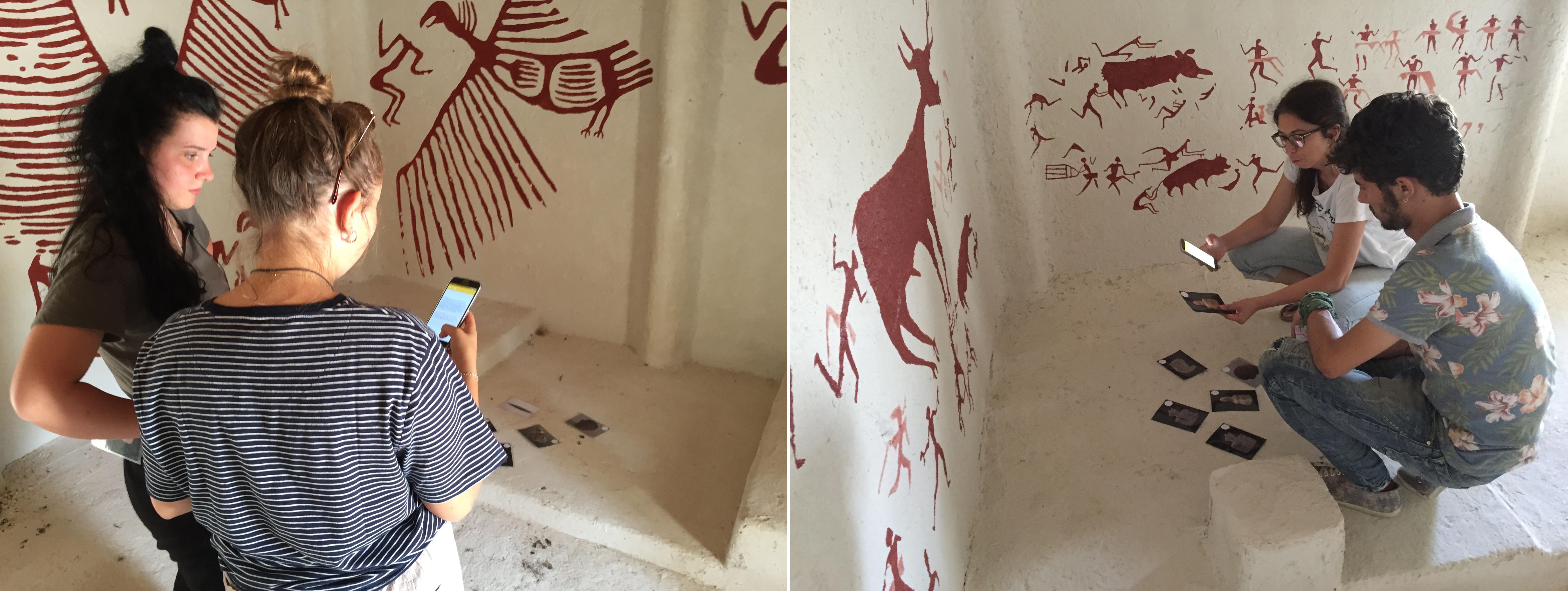I’m over the moon to have received Arts & Humanities Research Council funding via the European CHANSE scheme for the 3-year project Transforming Data Reuse in Archaeology (TETRARCHs). Starting in October 2022, TETRARCHs is an international collaboration between myself and colleagues at MOLA, and some of my favourite scholars in the world at the University of York (Dr Holly Wright, Dr Colleen Morgan, Dr James Taylor), the Research Centre for the Slovenian Academy of Sciences and Arts (Dr Dr Edisa Lozić, Dr Benjamin Štular), Lund University (Dr Nico Dell’Unto), the University of Antwerp (Dr Hélène Verreyke, Dr Piraye Hacigüzeller), Ghent Centre for Digital Humanities (Dr Christophe Verbruggen), and Vilnius University (Dr Rimvydas Laužikas).
We seek to examine how archaeological methodologies in the field, the lab and the archive can be changed to support storytelling with archaeological data. And we aim to fundamentally modify archaeology’s standard processes to enable more and better re-use of data, priming these data from the earliest possible moment to tell stories and share findings in ways that are democratic, engaging and just.
TETRARCHs doesn’t officially start until next week – so there’s much to come (including a dedicated website) – but in the first instance I’m looking for a Research Associate to join us. Do you know anyone with a background in human-centred design or expertise in ethnography and audience evaluation? If so, please get in touch!
The post runs for 2.5 years at £35,433 per annum. It is based out of our London office, but flexible working options are available. We would welcome applications from people outside of the UK using the Global Talent Visa method of entry.
Please view the full job description here and apply here, and email me with questions. I have copied the advertisement for the role below.
Do you have a passion for digital heritage, digital humanities, or the critical use of cultural data to benefit different audiences? Keen on the potentials of storytelling to transform how we understand the world around us? Interested to experiment with how we can embed creativity directly into data records, associated metadata, and controlled vocabularies?
We are seeking an enthusiastic and talented candidate, ideally educated to PhD level, to join the CHANSE-funded Transforming Data Reuse in Archaeology (TETRARCHs) Project, led by Dr Sara Perry, Director of Research & Engagement at MOLA.
The successful post holder will have a track record of developing and applying human-centred design methodologies in different contexts with multiple audiences, as well as supporting others in their use and evaluation. You will have demonstrable experience of gathering quantitative and qualitative data, as well as experience in analysing qualitative data and conveying it in forms that are meaningful to different constituencies.
Whilst supporting the Project Leader in implementing and monitoring key project work packages related to User-Centred Development and Evaluation, Storytelling and Creative Reuse, and Communications, you will:
- Collaboratively develop and implement a human-centred design and evaluation methodology to enable TETRARCHs’ partners and collaborators to prime archaeological data for storytelling, and evaluate the efficacy of the approach with key audiences over the life of the project
- Assist with compiling and monitoring the values and ethical frameworks under which the project will operate
- Develop or support others in the development of knowledge exchange, communications, promotions, and educational material for the project, with a focus on reaching the project’s key audiences (creative practitioners, memory institutions and their constituencies)
- Liaise with international partners and internal MOLA colleagues on the delivery of their project activities, as well as supporting the project’s Critical Friends’ User Group and Ethical Advisory Board
The successful candidate will have proven experience of critically applying research techniques and methodologies related to user-centred design, ethnography, and/or audience profiling and evaluation. You will have skills in working with people with multiple needs and people who may be facing a range of barriers to participation in heritage.
You will be skilled in communicating with – and listening to – people from a range of backgrounds in sensitive and supportive ways, and in preparing associated media to convey information in appropriate formats to targeted audiences. Competency with collaborative tools such as Miro, Google Jamboards or Padlet is required, as is self-motivation and a desire to go beyond the state of the art. A passion for matters of equality, diversity and inclusion is also a must.
This job will offer the opportunity to work both with MOLA’s own archaeological experts, and with partners and interested researchers around the world – networking, publishing, and presenting at conferences, as well as developing testimonials and content for wider audiences.


